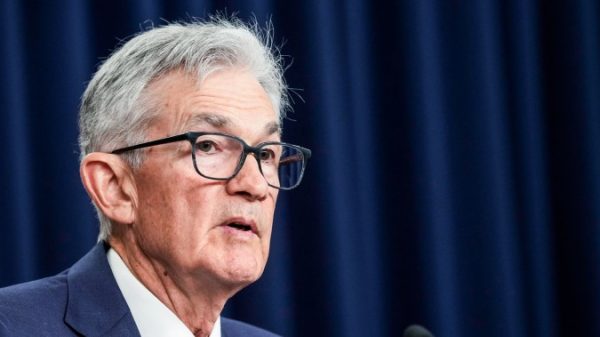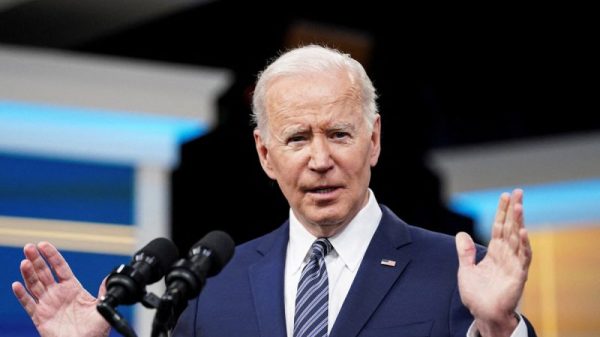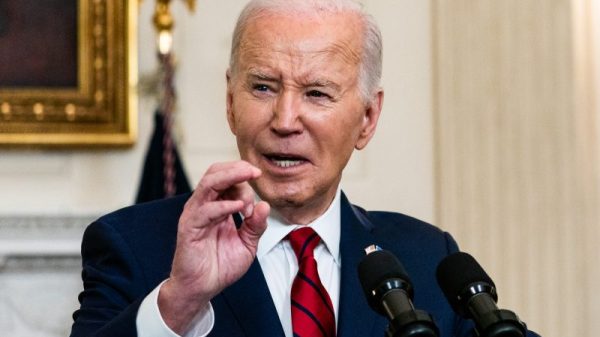As the market for digital assets continues to grow, investors are looking for new ways to gain exposure to cryptocurrencies, and one of the simplest ways to invest in cryptocurrencies is through exchange-traded funds (ETFs).
Following the historic approval of spot Bitcoin ETFs by the US Securities and Exchange Commission (SEC), investors have been wondering whether other prominent cryptocurrencies such as Ether could also see the launch of their own spot ETFs.
After Bitcoin, Ethereum is the largest cryptocurrency by market capitalization. However, despite demand for spot Ethereum ETFs, the SEC’s position on approving them has remained ambiguous.
What is Ethereum?
Ethereum is a decentralized open-source blockchain platform. While Bitcoin legitimized the concept of peer-to-peer (P2P) digital money, Ethereum expanded on the idea. The platform enables software developers to create decentralized applications that run on the blockchain — called dApps — and smart contracts, which are self-executing agreements with the terms directly written into code. The network also supports a digital currency called Ether, which is used to pay for transaction fees and computational services on the Ethereum network.
The Ethereum Virtual Machine is a runtime environment that uses smart contracts for various applications on the Ethereum blockchain. Some popular use cases for smart contracts on Ethereum, as well as other platforms such as Solana and Cardano, include decentralized finance, non-fungible tokens (NFTs), gaming, decentralized autonomous organizations, digital wallets and gambling.
Ethereum has undergone several changes to its network since its inception, each aimed at improving scalability, security and functionality. Two recent upgrades, the Merge and the Shanghai Upgrade, occurred in September 2022 and March 2023, respectively.
The Merge marked Ethereum’s transition from a proof-of-work (PoW) consensus mechanism, which is how Bitcoin operates, to a proof-of-stake (PoS) mechanism, which requires validators to put up some of their own Ether as a stake in the network’s consensus process. It involved merging the Ethereum mainnet with the PoS-based Beacon Chain, a separate blockchain in which users can deposit the 32 Ether required to become validators.
One major flaw of Ethereum’s original PoW mechanism was that it required a lot of energy to mine new blocks, and the costs trickled down to the users. This upgrade reduced network energy consumption by around 99.95 percent, making them more environmentally friendly. PoS mechanisms also allow for more transactions to be processed per block, which improves the scalability of Ethereum.
The Shanghai Upgrade in 2023 enabled the withdrawal of staked Ether from the Beacon Chain for the first time since its launch in 2022. Several Ethereum Improvement Proposals were included in this upgrade, laying the groundwork for future progress and resulting in enhanced network functionality and performance. Users also saw a further reduction in fees.
The most recent upgrade, Dencun, happened on March 13. Dencun is a very significant change for the platform, and the driving force behind this upgrade was the goals of reducing fees while increasing functionality and scalability.
Specifically, the Dencun upgrade introduced a process referred to as proto-danksharding, which creates a new data type called blobs and a new transaction type called blob-carrying transactions. Blobs compact and store rollup data — data that contains information about individual transactions — on a different block in Ethereum’s blockchain than regular transactions, thereby reducing the amount of energy needed to process them.
According to Dune Analytics, average transaction fees on leading Layer 2 networks — secondary systems that operate on top of a blockchain to improve scalability and efficiency — fell between 63 and 88 percent in the first 48 hours after the launch. The median price of swaps — the process of exchanging one cryptocurrency for another — on leading decentralized exchange Uniswap, which operates on the Ethereum blockchain, also fell from US$1.19 per transaction to just US$0.01, a difference of 96 percent.
Transaction fees on leading Layer 2 networks dropping significantly in the aftermath of the Dencun upgrade may have laid the groundwork for increased investor interest in Ethereum-based financial products.
What is an Ethereum ETF?
An ETF is a type of investment fund that holds a collection of underlying assets and trades like an individual stock on an exchange, giving investors exposure to the performance of a particular market, commodity or asset class without requiring them to invest directly in it.
In this case, Ethereum ETFs track its cryptocurrency Ether’s financial performance and allow investors to use traditional, regulated stock exchanges to benefit from Ether’s price movements. This means they can avoid complicated technical processes like setting up and managing cryptocurrency wallets, navigating decentralized exchanges or understanding underlying blockchain technology.
Cryptocurrency ETFs can also offer a more cost-effective way to invest compared to purchasing tokens directly. This makes them an attractive option for risk-averse investors who are interested in the crypto market but have concerns about volatility and security.
Spot ETFs and futures ETFs are the two distinct types of ETFs that differ primarily in the way investors gain exposure to underlying assets. Spot ETFs hold the underlying assets they aim to track, while futures ETFs do not. Instead, futures ETFs gain exposure by tracking the price of futures contracts, which are financial derivatives that represent an agreement to buy or sell an asset at a predetermined price and date in the future. Futures ETFs tend to carry additional risks, such as price discrepancies between futures and spot markets.
Ethereum futures ETFs have been available since the VanEck Ethereum Strategy ETF, the Bitwise Ethereum Strategy ETF and the ProShares Ether Strategy ETF made their debut on October 2, 2023. Due to the volatile nature of cryptocurrencies, investor sentiment has shown a strong preference for spot ETFs over futures-based ETFs, but spot ETFs for Ethereum have not yet been approved by the SEC.
Approval of spot Bitcoin ETFs paves way for Ethereum ETFs
Prominent cryptocurrency exchanges such as Coinbase, Binance and digital asset management firm Grayscale spearheaded the movement to persuade the SEC to allow spot ETFs for Bitcoin. The collective efforts of various stakeholders within the cryptocurrency ecosystem demonstrated a strong demand for investment products that provide direct exposure to cryptocurrencies.
When the SEC finally approved spot ETFs for Bitcoin on January 10, the decision was seen as a significant milestone for the mainstream acceptance of cryptocurrencies, leading to increased investment and media attention. The market for Bitcoin surged in reaction to the news, followed by a swift selloff, while Ether jumped to highs not seen since 2022. The price of both picked up further steam in late January.
Almost immediately after the Bitcoin approval, the discussion turned to the possibility of spot ETFs for other cryptocurrencies, with Ethereum being a prime candidate. Ethereum is the second most valuable cryptocurrency on all the major indexes and is generally considered the second best of the roughly 8,985 cryptocurrencies available as of writing.
On January 12, Blackrock CEO Larry Fink said during an interview with CNBC that he saw “value” in offering spot ETFs for Ethereum. “These are just stepping stones towards tokenization,” he said.
However, due to the potential for Ethereum’s underlying crypto asset to be classified as a security, the approval process will likely not be as straightforward as Bitcoin’s was, which is saying something — spot Bitcoin ETFs were only approved after years of litigation.
The debate over Ethereum’s classification
The debate on how to classify cryptocurrencies is at the center of the dispute between the regulatory agency and the cryptocurrency sector.
In 2018, William Hinman, who served as the Director of the SEC’s Division of Corporation Finance from 2017 – 2020, classified Bitcoin and Ether as non-securities on the grounds that their decentralized nature, as well as their functional characteristics used for storing value and conducting transactions, didn’t meet the definition. Since then, Gary Gensler, who took over Jay Clayton’s role as SEC chairman in 2020, has argued that cryptocurrencies meet the definition of securities, which would subject them to more stringent regulations.
In contrast, the Commodity Futures Trading Commission (CFTC) has classified crypto as a commodity, which would place it under a different regulatory regime. Many contend that cryptocurrencies don’t neatly fit into existing regulatory categories, a position that Gensler disagrees with.
The approval of spot Bitcoin ETFs depended on the SEC allowing specific rule exceptions to be made, instead of reclassifying Bitcoin as a security. The rule change has not automatically extended to other cryptocurrencies, and SEC Chairman Gary Genser has indicated that the agency will take a cautious and deliberate approach in evaluating ETF proposals for other cryptocurrencies and make decisions on a case-by-case basis, much to the frustration of industry professionals and judges.
In an article for Coin Telegraph in January, Lucas Kiely, chief investment officer of Yield App, wrote that the justifications for the SEC’s decade-long fight against a Bitcoin ETF were nothing short of political. With the recent approval of a spot Bitcoin ETF, Kiely asserted that the SEC has now settled the debate over crypto’s classification as a commodity. He contends that there should be no reason to delay the approval of Ethereum ETFs, given the similarities between Bitcoin and Ethereum in terms of their decentralized nature and widespread adoption.
Kiely’s argument raises a question about the consistency of the SEC’s approach to cryptocurrency classifications. If the SEC has provided clear guidance on classifying Bitcoin as a non-security, it would seem logical that this classification could also apply to Ether.
The Howey Test has emerged as a key legal framework to determine whether a digital asset should be considered a security. To determine whether a particular asset or transaction qualifies as an investment contract, the test considers whether it involves the investment of money in a common enterprise with the expectation of profits derived from the efforts of others.
While Bitcoin is primarily seen as a decentralized digital currency, Ether is more closely associated with the Ethereum blockchain platform, along with its range of smart contracts and dApp functionalities. This complexity has led to ongoing discussion and uncertainty around Ether’s classification as a security or a commodity.
Kiely also cited liquidity as a potential roadblock, as well as the fact that Ether is used as a working currency, unlike Bitcoin, which is primarily bought as a store of value.
Which firms have applied to offer spot Ethereum ETFs?
Eight institutions are awaiting SEC approval for spot Ether ETFs: BlackRock, VanEck, ARK 21Shares, Grayscale, Fidelity, Invesco and Galaxy Digital through a joint proposal, as well as Franklin Templeton, which is the most recent financial firm to apply, having done so in February.
VanEck was the first institution to file in July 2021, but the SEC has repeatedly delayed deciding on this application and others on multiple occasions. Cboe Digital, the cryptocurrency arm of Cboe Global Markets and one of the few US exchanges approved to offer margined Bitcoin and Ether futures, submitted VanEck’s most recent application, along with the proposal on behalf of ARK 21Shares, on September 6, 2023.
Also in September, shortly before also applying for spot Ether ETFs, Grayscale applied to offer futures Ether ETFs, a move some analysts believed was strategic, meant to strongarm the SEC into approving spot Ether ETFs. Grayscale’s subsequent application to convert its Ethereum trust into a spot Ether ETF in October 2023 caused shares to jump 6.15 percent, indicating demand.
SEC regulators announced just days before the original December 26 deadline that they would postpone the decision for VanEck’s spot ETF and Grayscale’s Ethereum Futures ETF applications until May 23, citing the need for further consideration of the complex regulatory issues involved. Applications that were also delayed were the ARK 21Shares Ethereum ETF and the Hashdex Nasdaq Ethereum ETF, an ETF that was created through a collaboration between Brazilian asset manager Hashdex and the Nasdaq stock exchange.
Recently, representatives from Coinbase met with the SEC to present Grayscale’s proposal, hoping to sway the regulators in their favor. During the meeting, Coinbase said it has partnered with the Chicago Mercantile Exchange to closely monitor trading activities for fraud and manipulation. They have agreed to share information to ensure transparency and regulatory compliance.
Will the SEC approve spot Ethereum ETFs?
Early on in 2024, analysts predicted that Ether ETFs would have a “clear path” to approval following the sweeping approval of 11 spot Bitcoin ETFs. At that time, the odds of a spot Ethereum ETF by May were pegged at 70 percent by Bloomberg ETF analyst Eric Balchunas. However, he has since reduced his estimate to 35 percent.
“All the signs/sources that were making us bullish 2.5mo out for BTC spot are not there this time,” he posted to X, the social media platform formerly known as Twitter, on March 11.
He isn’t the only one reigning in expectations. FOX reporter Eleanor Terrett tweeted that optimism surrounding approval is “waning” amidst one-sided talks between issuers and the SEC and opposition from a group of lawmakers who want the SEC to halt crypto ETF approvals. Despite these challenges, some reacted to the 21-day public comment period commenced by the SEC on April 2 with optimism. However, Bloomberg ETF analyst James Seyffart was quick to curb enthusiasm, pointing out that the SEC was merely following standard procedure.
“Every single 19b-4 ETF filing goes through the same process (whether approved or denied). It’s not ‘bullish’ in any capacity for Ethereum ETFs,” he posted on April 3.
Some analysts are still optimistic that Ether ETFs will be approved, even if a lengthy litigation process is necessary. Nikolaos Panigirtzoglou, a managing director and global market strategist at JPMorgan, told the Block that even if the SEC does reject the pending applications, the regulator is unlikely to win any legal battle brought to it by these financial institutions.
“We believe that the most likely scenario is that the SEC eventually loses this litigation (similar to what happened with the Grayscale and Ripple legal battles last year), which means that eventually, the SEC will approve spot Ethereum ETFs (but not as soon as this May),” he said.
The regulators have also been tight-lipped regarding any progress made, a noticeable deviation from their more open dialogue in the weeks leading up to the approval of spot Bitcoin ETFs. Since the meeting with Coinbase on March 6, the SEC has not provided any updates on the approval of an Ether ETF. Additionally, there has been less media coverage compared to the nearly daily updates of the Bitcoin ETFs approval process.
X user @chiefingza posited that the lack of intense media coverage might be due to the similarity of the Ether ETF story to that of the Bitcoin ETF, causing a sense of news fatigue among outlets and the public. Furthermore, they argued that the exact date of approval, whether in May or later, is less important than the fact that it will happen eventually, as the crypto industry continues to mature and gain mainstream acceptance.
Importantly, as reported by Bloomberg, analysts at Standard Chartered have predicted that Ether will likely not experience the immense selloffs that Bitcoin experienced in January. When Grayscale’s Bitcoin Trust was converted to a Bitcoin ETF, holders were able to make redemptions, leading to a significant outflow that resulted in a 20 percent drop in the price of Bitcoin. Grayscale’s Ethereum Trust holds far less of Ether’s market cap, making it less prone to significant losses from a sell-off than Bitcoin was.
Investor takeaway
In January, financial services company Standard Chartered predicted that Ether would reach a price point of US$4,000 by the approval deadline of May 23, a price it has not seen since December 2021. It has since surpassed that landmark, going as high as US$4,070 on March 11, according to data gathered from CoinGecko. As of writing, Ethereum is currently valued at US$3,503.74, up 94.8 percent year-over-year.
Given Ethereum’s recent price momentum and the anticipation surrounding the SEC’s upcoming decision on spot Ethereum ETFs, investors and market observers are closely watching to see how these factors might influence the future growth and mainstream adoption of the world’s second-largest cryptocurrency.
Securities Disclosure: I, Meagen Seatter, hold no direct investment interest in any company mentioned in this article.







































